What is Organic Content Marketing?
Organic marketing, also known as inbound marketing, focuses on using natural outreach tactics rather than relying solely on promotional content and paid advertising.
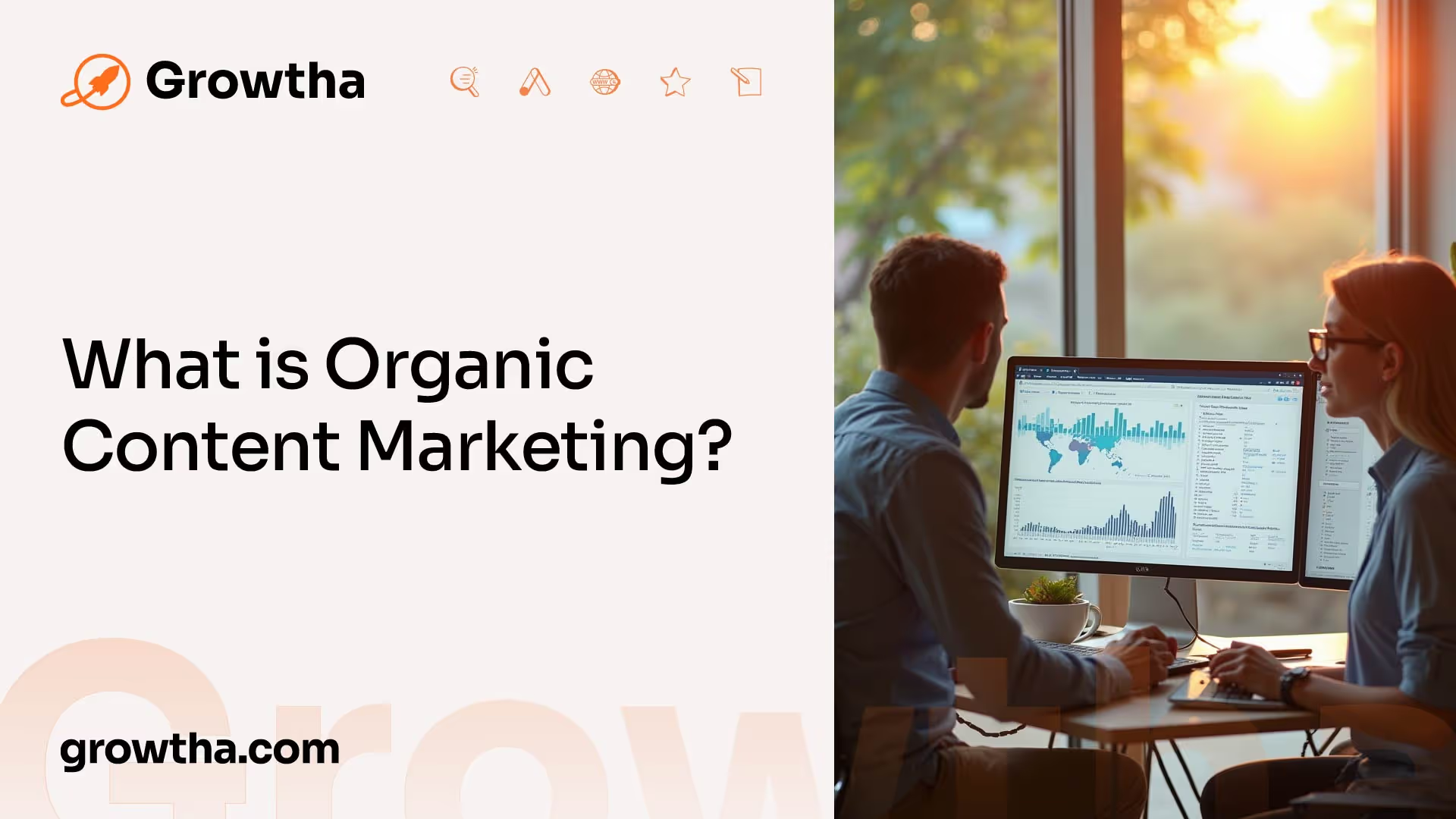

What is Organic Content Marketing?
Understanding Organic Marketing
In the world of digital marketing, organic marketing has emerged as a powerful approach for brands and businesses to connect with their audience in a natural and authentic way. Let's explore what organic marketing is and the benefits it brings.
What is Organic Marketing?
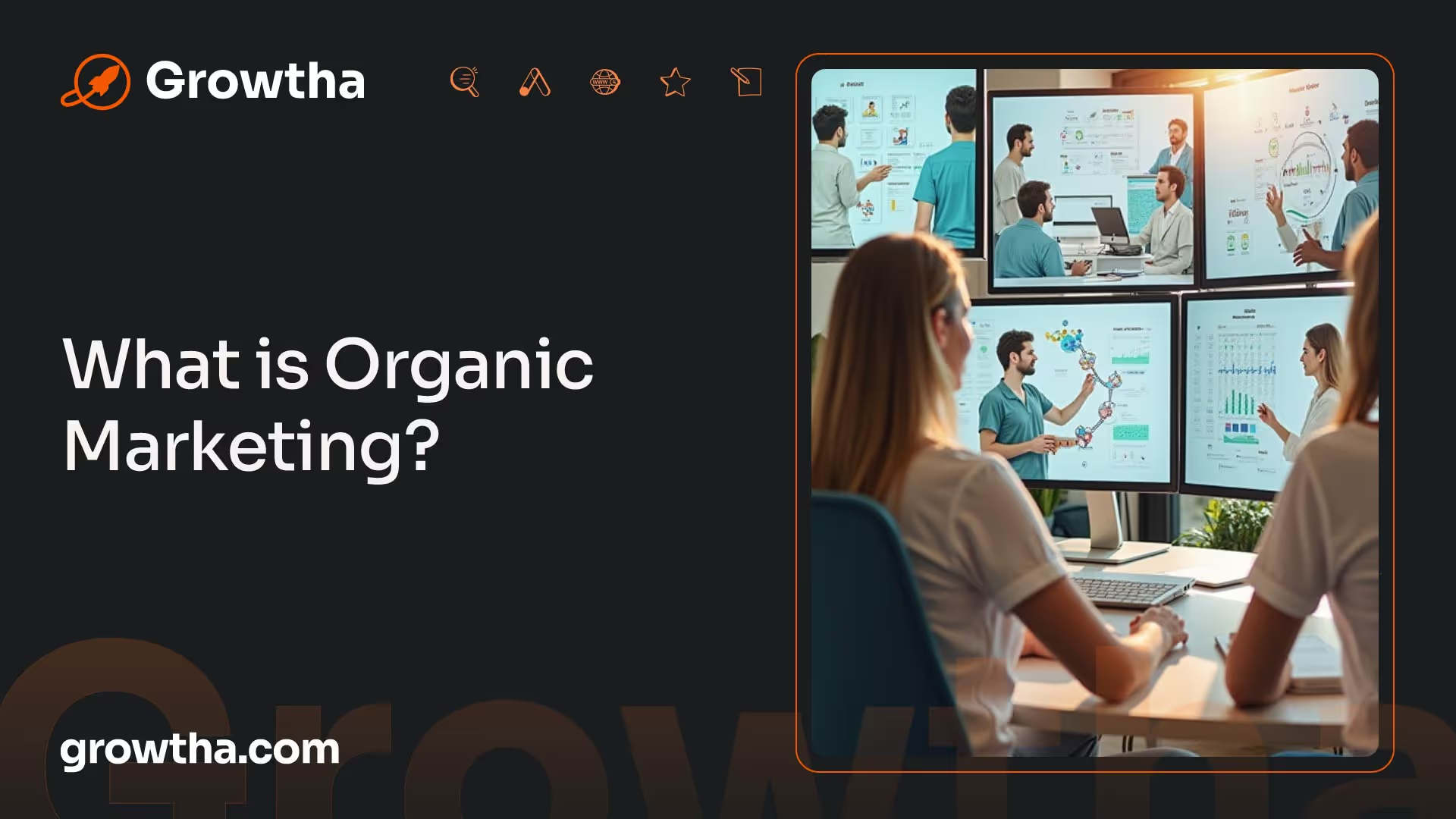
Organic marketing, also known as inbound marketing, focuses on using natural outreach tactics rather than relying solely on promotional content and paid advertising. It encompasses various activities such as maintaining a blog, engaging on social media platforms, sending email newsletters, and creating educational or entertaining content [1].
The main goal of organic marketing is to increase brand awareness and build a strong connection with the audience. It prioritizes creating valuable content that resonates with the target market and encourages an emotional connection between customers and brands. By providing relevant and engaging content, organic marketing aims to establish trust, credibility, and loyalty among the audience [1].
Benefits of Organic Marketing
Organic marketing offers several benefits for brands and businesses. Let's take a closer look at some of the advantages it brings:
- Long-term Relationship Building: Organic marketing focuses on building lasting relationships with the audience. By consistently delivering valuable content and engaging with customers, brands can foster long-term loyalty and advocacy.
- Cost-Effective: Compared to paid advertising, organic marketing can be a more cost-effective approach. While it requires time and effort to create and distribute content, the impact can be significant without the need for substantial financial investments.
- Increased Brand Awareness: Through organic marketing efforts, brands can enhance their visibility and reach a wider audience. By providing valuable content that educates, entertains, or solves problems, brands can attract and engage potential customers, ultimately increasing brand awareness.
- Sustainable Traffic Generation: Effective organic marketing creates permanent traffic sources for websites. By optimizing content assets for better discoverability and providing value to the audience, brands can attract organic traffic that continues to drive visits and engagement over time.
- Adapting to Privacy Concerns: With recent privacy policy updates and growing customer concerns about privacy, organic marketing becomes even more impactful. By focusing on natural outreach tactics rather than invasive advertising practices, brands can respect customers' privacy preferences while still reaching and engaging with their target audience.
Organic marketing has proven to be a valuable strategy in today's marketing landscape. Brands and businesses that prioritize organic marketing efforts can experience increased website performance, brand loyalty, and positive brand experiences. By creating meaningful connections with their audience, brands can establish themselves as trusted industry leaders and drive long-term success.
Components of Organic Marketing
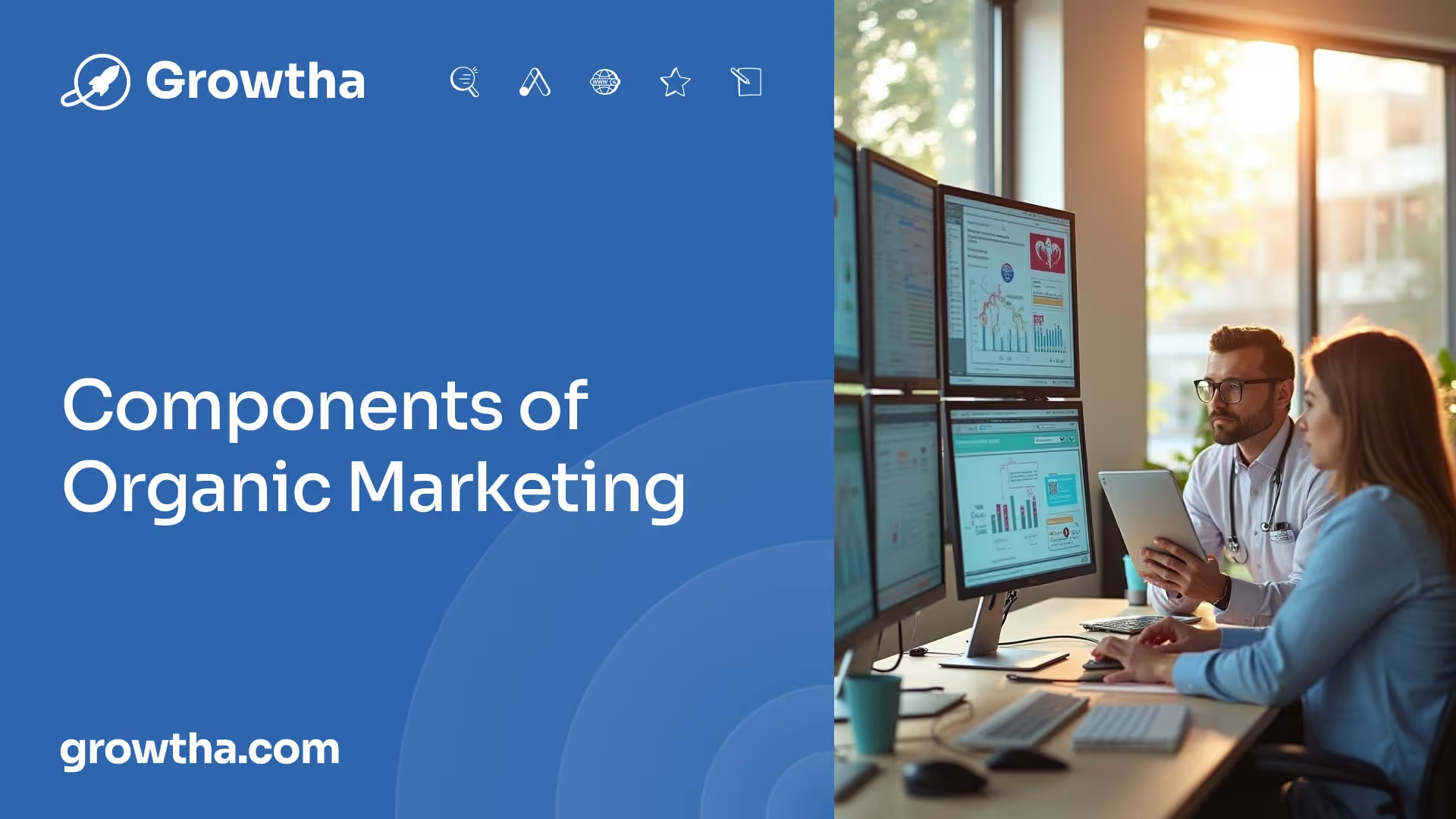
Organic marketing encompasses various components that work together to promote a brand or business through natural outreach tactics, without relying on paid advertising. These components include organic content, social media marketing, and SEO strategies.
Organic Content
Organic content forms the foundation of organic marketing. It includes various forms of free content shared on platforms like blogs, social media, videos, and more. This content is not promoted through paid advertisements but relies on natural reach and engagement. Organic content allows businesses to connect with their target audience by providing valuable and relevant information, entertainment, and engagement.
Social Media Marketing
Social media platforms play a significant role in organic marketing. Organic social media marketing involves creating and sharing free content on social media profiles, such as posts, videos, stories, and more. This content can be seen by a portion of your followers, people following relevant hashtags, and the followers of anyone who shares your post [2]. It is a cost-effective way to reach and engage with your target audience, building brand awareness and fostering meaningful connections [3].
SEO Strategies
Search Engine Optimization (SEO) strategies are essential for organic marketing. SEO focuses on optimizing website content and structure to increase visibility and organic traffic from search engines. This involves keyword research and optimization, on-page SEO techniques, and other factors that help search engines understand and rank your website content [4]. By implementing effective SEO strategies, businesses can improve their online presence, attract organic traffic, and gain exposure to a wider audience.
Incorporating these components into an organic marketing strategy allows businesses to build brand awareness, engage their audience, and establish long-lasting customer relationships. Organic marketing takes advantage of natural outreach tactics, word-of-mouth marketing, and content promotion to generate free traffic and attract potential customers [5]. While organic marketing is effective on its own, it can also be complemented by paid marketing strategies to enhance results and reach a broader audience. By leveraging organic content, social media marketing, and SEO strategies, businesses can create a comprehensive organic marketing approach that drives meaningful engagement and sustains long-term success.
The Role of Content in Organic Marketing
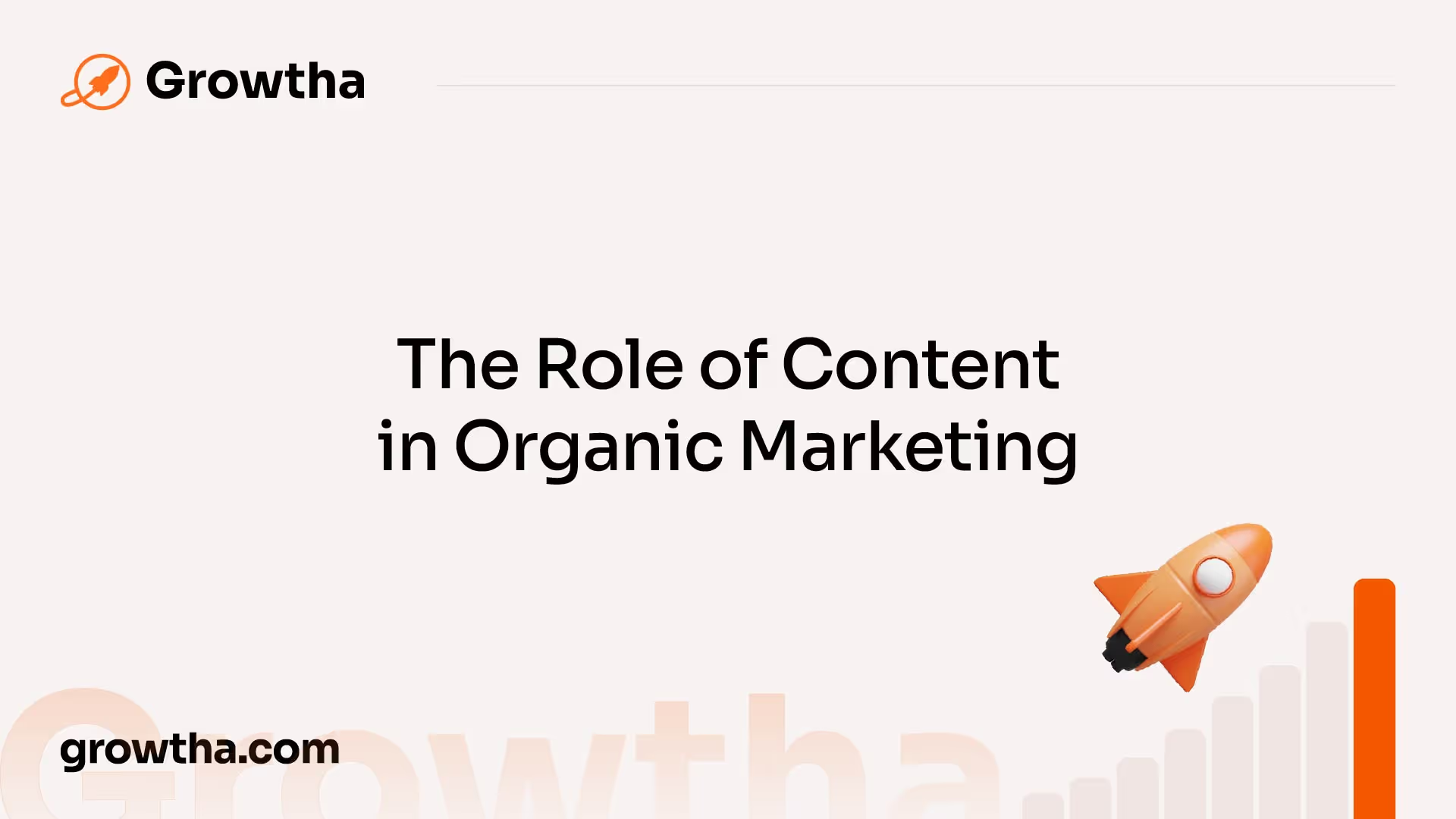
In the realm of organic marketing, content takes center stage as a crucial element in achieving success. Organizations aiming to build brand awareness and establish a strong connection with their audience rely heavily on creating valuable content. By fulfilling the needs of their target audience, businesses can foster engagement, trust, and loyalty, all of which are vital components of organic marketing efforts.
Creating Valuable Content
Valuable content lies at the core of organic marketing. Customers respond best to content that meets their needs and provides them with valuable information, entertainment, or both. By focusing on creating content that excites and resonates with the audience, businesses can establish themselves as industry leaders and build a loyal following. Even with limited resources, organizations can produce content that captivates and engages their target audience through organic marketing efforts.
Engaging Your Audience
Engaging the audience is a key objective of organic marketing. By developing content that educates, entertains, or inspires, businesses can forge an emotional connection between customers and their brand. This connection helps foster positive brand experiences and encourages customers to actively engage with and share the content. Through effective storytelling, thought-provoking articles, or interactive social media posts, organizations can create a sense of community and encourage their audience to become brand advocates [1].
Building Trust and Loyalty
Organic marketing thrives on building trust and loyalty with the target audience. By consistently delivering valuable content and engaging with customers authentically, organizations can establish themselves as trustworthy sources of information. This trust forms the foundation for long-term brand-customer relationships, leading to customer loyalty and advocacy. Content that addresses customer pain points, provides solutions, and demonstrates expertise helps build credibility and fosters a sense of loyalty among the audience [1].
In the realm of organic marketing, content plays a pivotal role in achieving business goals. By creating valuable content, engaging the audience, and building trust and loyalty, organizations can effectively leverage the power of content to drive organic growth and establish a strong brand presence.
Leveraging Social Media for Organic Marketing
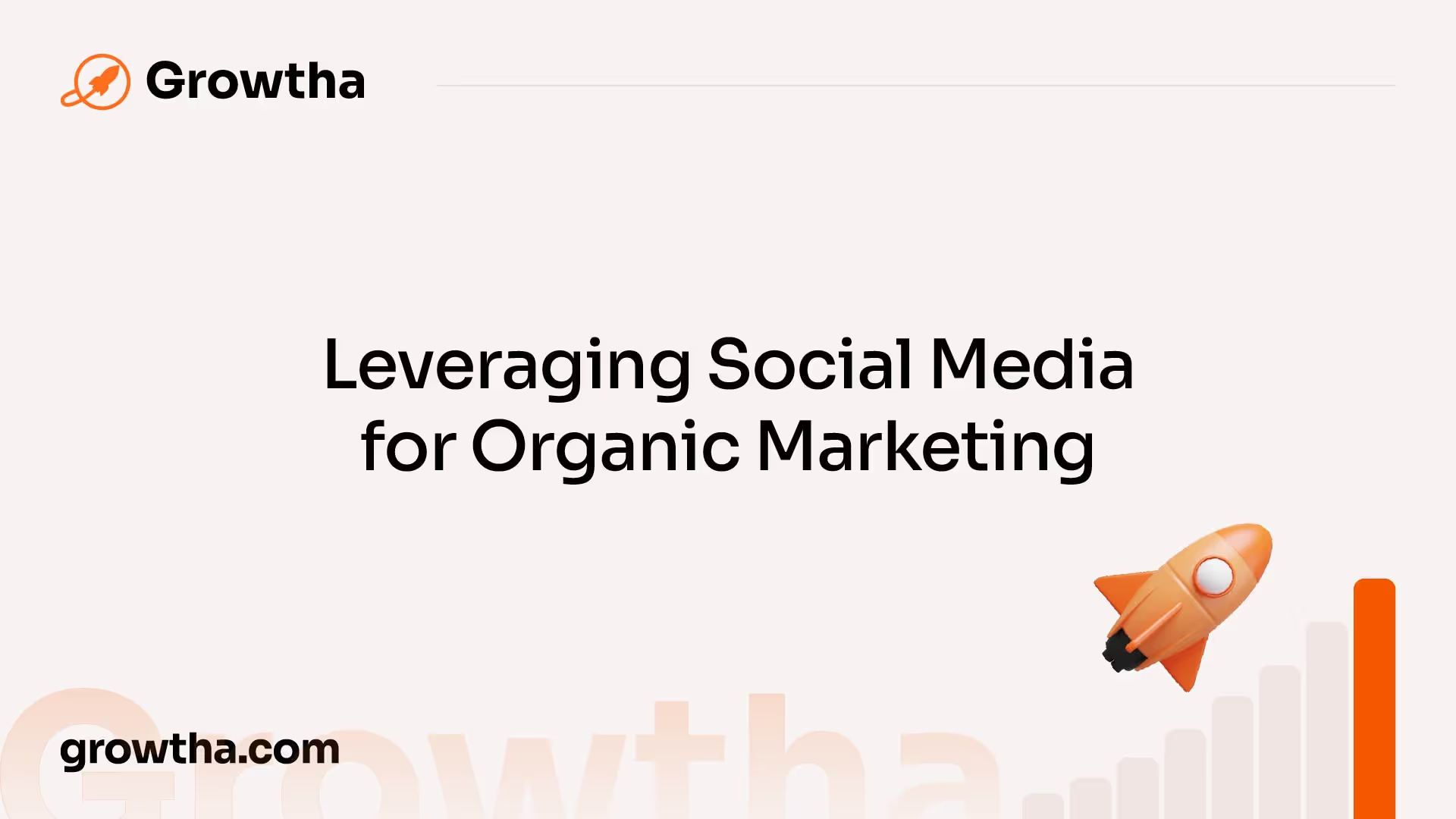
Social media platforms play a pivotal role in organic marketing strategies. Leveraging the power of social media can help businesses reach their target audience, engage with customers, and build strong brand relationships. In this section, we will explore the importance of social media platforms, strategies for organic social media marketing, and how to effectively engage your social media audience.
Social Media Platforms
When it comes to organic marketing, businesses have a plethora of social media platforms to choose from. Each platform offers unique features and benefits that can be utilized to connect with your target audience. Some popular social media platforms include Facebook, Instagram, Twitter, LinkedIn, and Pinterest. It's essential to understand the demographics and preferences of your target audience to determine which platforms are most suitable for your organic marketing efforts.
Strategies for Organic Social Media Marketing
Organic social media marketing is one of the most cost-effective ways to reach a target audience [3]. By using the right keywords, hashtags, and location-based targeting, businesses can enhance the effectiveness of their campaigns and deliver targeted messaging to the right audience.
To make the most of organic social media marketing, consider the following strategies:
- Content Strategy: Develop a well-rounded content strategy that focuses on creating valuable and relevant content for your target audience. This can include informative blog posts, engaging videos, captivating images, and thought-provoking infographics. Tailor your content to suit the preferences of each social media platform.
- Consistency: Regularly posting content and engaging with your audience is crucial for organic social media marketing success. Create a content calendar to ensure a consistent presence on your chosen platforms. Respond promptly to comments, messages, and mentions to foster a sense of connection and build trust with your audience.
- Hashtags and Keywords: Utilize relevant hashtags and keywords in your social media posts to increase visibility and reach. Research the popular hashtags within your industry and incorporate them strategically into your content. This helps attract users who are searching for specific topics or interests.
- Engagement: Actively engage with your social media audience by responding to comments, questions, and feedback. Encourage discussions, ask questions, and initiate conversations to foster a sense of community. Show genuine interest in your followers and build strong relationships with them.
Engaging Your Social Media Audience

Organic social media marketing not only helps attract attention and drive traffic to your website or blog, but it also plays a pivotal role in building relationships with customers and increasing brand loyalty. To effectively engage your social media audience, consider the following tips:
- Interact: Respond to comments, messages, and mentions promptly. Show appreciation for positive feedback and address any concerns or issues raised by your audience. Make your audience feel heard and valued.
- Visual Appeal: Utilize visually appealing content, such as high-quality images, videos, and infographics, to capture the attention of your audience. Visuals are more likely to be shared and can increase engagement with your posts.
- Contests and Giveaways: Organize contests, giveaways, or challenges that encourage your audience to participate and share your content. This not only boosts engagement but also helps increase your brand's reach as participants share your content with their networks.
- User-Generated Content: Encourage your audience to create and share content related to your brand. This can include testimonials, reviews, or creative posts featuring your products or services. User-generated content not only strengthens brand loyalty but also acts as social proof for potential customers.
By leveraging social media platforms, implementing effective organic social media marketing strategies, and engaging with your audience, you can harness the power of social media to build brand awareness, drive organic traffic, and foster long-term relationships with your customers. Remember, integrating organic and paid marketing strategies can maximize your results and help you achieve your marketing goals.
Optimizing Your Website for Organic Marketing
When it comes to organic marketing, optimizing your website is crucial for improving your online visibility and attracting organic traffic. Search engine optimization (SEO) plays a pivotal role in achieving these goals. In this section, we will explore the importance of SEO, keyword research and optimization, and on-page SEO techniques.
Importance of SEO
SEO is the foundation of organic marketing. It involves optimizing your website and its content to rank higher in search engine results pages (SERPs) organically. By implementing effective SEO strategies, you can increase your website's visibility, attract more organic traffic, and ultimately drive conversions.
Search engines determine the credibility of blog posts or websites based on various factors such as relevance, usefulness, quality, and user engagement. This process takes time, and organic content may take 6-12 months to rank highly in SERPs compared to paid advertising that offers quick results. However, the long-term benefits of organic traffic make it a valuable investment for businesses.
Keyword Research and Optimization
Keyword research and optimization are essential elements of any successful SEO strategy. Conducting thorough keyword research helps you understand the search terms and phrases your target audience uses to find information related to your industry or niche. By incorporating these keywords strategically throughout your website content, you can improve your chances of ranking higher in relevant search queries.
To optimize your website effectively, consider the following steps:
- Identify relevant keywords: Use keyword research tools to identify keywords that align with your website's content and target audience. Focus on long-tail keywords that have lower competition but higher intent.
- Create high-quality content: Develop valuable and informative content around your chosen keywords. Ensure that your content is well-structured, engaging, and provides value to your audience.
- Optimize on-page elements: Optimize your title tags, meta descriptions, headings, and image alt tags with relevant keywords. This helps search engines understand the content of your web pages and improves their visibility in SERPs.
- Use internal and external links: Incorporate internal links to other relevant pages on your website to enhance navigation and improve the user experience. Additionally, include external links to reputable sources that provide additional information and context.
On-Page SEO Techniques
On-page SEO refers to the optimization strategies implemented directly on your web pages. These techniques help search engines understand the content and context of your website. Some key on-page SEO techniques include:
- Optimizing URL structure: Create descriptive and keyword-rich URLs that accurately reflect the content of each page.
- Optimizing headings and subheadings: Use relevant keywords in your headings (H1, H2, etc.) to signal the importance and relevance of your content.
- Writing unique and compelling meta descriptions: Craft engaging meta descriptions that accurately summarize the content of each page and entice users to click through to your website.
- Using structured data markup: Implement schema markup to provide additional context and information about your content to search engines, improving the display of your website in SERPs.
By implementing these on-page SEO techniques, you can enhance the visibility and relevance of your website in search engine results, driving organic traffic and improving your overall online presence.
Optimizing your website for organic marketing is an ongoing process. Regularly monitor your website's performance, make necessary adjustments to your SEO strategy, and create high-quality content that resonates with your target audience. By prioritizing SEO and employing effective optimization techniques, you can elevate your website's visibility and attract valuable organic traffic.
The Power of Organic Traffic
In the realm of digital marketing, organic traffic plays a vital role in driving sustainable growth and success for businesses. Understanding the benefits of organic traffic, its potential for long-term success, and the ability to measure and analyze its impact is crucial for any organization.
Benefits of Organic Traffic
Organic traffic refers to the visitors who come to your website through unpaid, natural search engine results. This type of traffic is considered more trustworthy by consumers compared to paid content, as organic results are perceived to be more relevant and genuine.
Some key benefits of organic traffic include:
- Cost-effectiveness: Unlike paid advertising, organic traffic does not require ongoing financial investment. It delivers consistent results that grow over time without additional marketing expenditure.
- Brand credibility: Organic search results convey a sense of trustworthiness to users. When your website ranks high in organic search results, it signals credibility and authority in your industry.
- Long-term asset: Effective organic marketing creates permanent traffic sources for websites over time, leading to long-term success. By consistently producing valuable content and optimizing your website for search engines, you can build a sustainable source of organic traffic.
Long-Term Success with Organic Traffic
While organic traffic takes time to build, it can lead to sustainable and long-lasting success for businesses. By focusing on creating high-quality, informative content that aligns with the needs of your target audience, you can attract organic traffic that is genuinely interested in your offerings.
By consistently optimizing your website and staying up to date with SEO best practices, you can maintain and improve your organic rankings over time. This long-term approach allows you to establish a strong online presence and continuously attract relevant visitors to your website.
Measuring and Analyzing Organic Traffic
To gauge the effectiveness of your organic marketing efforts, it's essential to measure and analyze your organic traffic. Tools like Google Analytics provide valuable insights into the performance of your website, including the number of organic visitors, their behavior, and the pages they engage with.
By monitoring key metrics such as organic traffic volume, bounce rate, time on page, and conversion rates, you can assess the impact of your organic marketing strategies. This data helps you identify areas for improvement and refine your content and SEO strategies accordingly.
It's important to note that organic traffic is not just about quantity but also about quality. While increasing the number of organic visitors is desirable, ensuring that they are relevant and engaged is equally crucial. By analyzing user behavior and identifying patterns, you can optimize your website and content to better meet the needs of your audience.
In conclusion, organic traffic is a powerful asset for businesses, delivering consistent and trustworthy results. By investing in organic marketing strategies, focusing on valuable content, and optimizing your website for search engines, you can harness the long-term benefits of organic traffic and drive sustainable growth for your business.
Integrating Paid and Organic Strategies
To maximize the effectiveness of marketing efforts, it is essential to integrate both paid and organic strategies. By combining these approaches, businesses can leverage the unique advantages of each to achieve optimal results.
The Role of Paid Advertising
Paid advertising plays a crucial role in reaching a wider audience and generating immediate visibility for products or services. It allows businesses to promote their offerings directly to their target market. Paid advertising channels include search engine advertising, social media advertising, display ads, and sponsored content.
Paid advertising can complement organic marketing efforts by targeting specific demographics, locations, and interests. It can help drive initial awareness, attract potential customers, and generate leads. By utilizing paid advertising strategically, businesses can reach prospects who are ready to make a purchase, thereby increasing the chances of conversion.
Combining Paid and Organic Content
While paid advertising provides quick results, organic content marketing focuses on building long-term relationships with the audience. Organic marketing prioritizes natural outreach tactics over promotional content and paid advertising. It aims to attract and convert customers through high-quality content that provides value at low to no cost [1].
By combining paid and organic content, businesses can create a comprehensive marketing strategy. Paid advertising can drive traffic to organic content, such as blog posts, videos, and social media profiles. This organic content, in turn, helps to deepen the connection with the audience, build trust, and establish a brand's authority in the industry.
Maximizing Results with a Holistic Approach
To achieve the best results, businesses should adopt a holistic approach that integrates paid and organic strategies harmoniously. Rather than viewing them as separate entities, businesses can leverage the strengths of each strategy to create a cohesive and comprehensive marketing plan.
By utilizing paid advertising to generate initial awareness and organic content to nurture relationships, businesses can create a well-rounded marketing ecosystem. This approach allows for sustainable growth, as organic marketing efforts continue to attract and engage the audience over time.
Furthermore, the rise of privacy concerns and challenges in paid advertising has further highlighted the importance of organic marketing. According to a survey by Search Engine Journal, 90 percent of companies with high organic maturity experienced at least a 5 percent increase in website performance, emphasizing the impact of organic marketing in the current landscape.
By integrating paid and organic strategies, businesses can benefit from immediate visibility, targeted advertising, long-term brand awareness, and sustainable traffic sources. This comprehensive approach maximizes the reach, engagement, and conversion potential of marketing efforts, leading to overall marketing success.
References
[1]: https://buffer.com/library/organic-marketing/
[2]: https://www.forbes.com/sites/forbescommunicationscouncil/2022/05/06/the-differences-between-paid-and-organic-content-on-social-media/
[3]: https://www.linkedin.com/pulse/organic-content-strategy-benefits-social-media-marketing-shelly-terry/
[4]: https://storychief.io/blog/ultimate-organic-marketing-guide
[5]: https://sendpulse.com/support/glossary/organic-marketing
[6]: https://c1m.ai/whats-the-difference-between-paid-ads-vs-organic-content/







